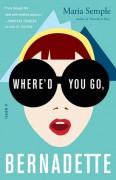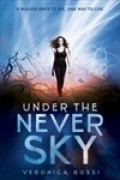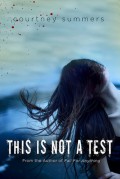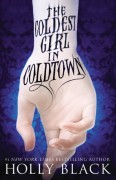Kate Brauning
YA author. HOW WE FALL coming Nov. 11, 2014 from Merit Press, F+W Media. Book evangelist. Optimist, enthusiast, fangirl. Represented by Carlie Webber
Author Talks: Kate Brauning

Please welcome Kate Brauning to BookLikes' Author Talks!
Kate is an Young Adult author with her debut novel How We Fall coming out November 11th. She writes contemporary and speculative suspense. Kate has written novels since she was a teen, but it wasn’t until she studied literature in college that she fell in love with the soul of young adult books.
You can follow Kate on BookLikes where she shares her favorite reads and reviews here: Kate Brauning. Read on to win Kate's debut novel.
![]() As a child you’ve enjoyed spending time in the library. Was it then when you thought “I want to be a writer!”?
As a child you’ve enjoyed spending time in the library. Was it then when you thought “I want to be a writer!”?
![]() I’ve always had fun writing stories, and I wrote a novel all through high school. I loved it, but it just never occurred to me that I could write for a career. I kept on loving it, though, and in college I decided that I loved it too much to not try.
I’ve always had fun writing stories, and I wrote a novel all through high school. I loved it, but it just never occurred to me that I could write for a career. I kept on loving it, though, and in college I decided that I loved it too much to not try.
![]() You seems to be keen on Young Adult: you write and edit YA novels. Why have you decided to write in this genre, or did the genre pick you?
You seems to be keen on Young Adult: you write and edit YA novels. Why have you decided to write in this genre, or did the genre pick you?
![]() Oh, that’s a great question, with a tough answer. Yes, YA has really grabbed me. Young adult fiction explores the teenage years of a person’s life, and those years are a significant point of change for most of us. Teens are tackling adult issues for the first time—serious relationships, jobs, shifting authority structures, new limits and opportunities—but they’re doing it without the experience and often without the resources that adults may have. It’s a vulnerable, heady, thrilling stage in someone’s life. Teens are also adjusting to greater independence and more authority in their own lives, but might still be dealing with limitations at odds with those things, like curfews, not having a car, house rules, and the structures of school. YA tackles that.
Oh, that’s a great question, with a tough answer. Yes, YA has really grabbed me. Young adult fiction explores the teenage years of a person’s life, and those years are a significant point of change for most of us. Teens are tackling adult issues for the first time—serious relationships, jobs, shifting authority structures, new limits and opportunities—but they’re doing it without the experience and often without the resources that adults may have. It’s a vulnerable, heady, thrilling stage in someone’s life. Teens are also adjusting to greater independence and more authority in their own lives, but might still be dealing with limitations at odds with those things, like curfews, not having a car, house rules, and the structures of school. YA tackles that.
The experiences we have in our teenage years are formative ones, and the mistakes and choices we make can follow us into adulthood. There’s great opportunity, uncertainty, and passion in those years, and they leave a mark on us. I didn’t start reading YA until I reached my twenties, and I wish I’d found it earlier—seeing so closely into the lives of other teens who are wrestling with the same changes and struggles I was would have been so helpful as a teen. I still find myself identifying with the characters in these stories, because people never stop struggling with change. You don’t grow out of YA.
A final reason I love YA is that there’s no reason not to. Teens are every bit as complex as adults, and they can think as deeply, too. Of course they can. Teens aren’t a more simplistic or less demanding audience, and their stories aren’t any simpler or less worthy. When I came to YA as an adult, what drew me in was the depth of these stories, and that’s what I’ve stayed for, too.
![]() Your debut novel How We Fall is about to be released, congratulations! Can you tell our readers more about the book -- the plot is quite controversial.
Your debut novel How We Fall is about to be released, congratulations! Can you tell our readers more about the book -- the plot is quite controversial.
![]() I’d love to! Yes, the cousins relationship is unusual, but the complexities of it are why I wanted to write about it. I love best friend romances, and to me, that’s essentially what this story is. I think best friend romances are sweet, and deep, and full of little tensions. There’s not much like discovering the person who knows you best is the one you want to share your life with.
I’d love to! Yes, the cousins relationship is unusual, but the complexities of it are why I wanted to write about it. I love best friend romances, and to me, that’s essentially what this story is. I think best friend romances are sweet, and deep, and full of little tensions. There’s not much like discovering the person who knows you best is the one you want to share your life with.
To me, How We Fall is primarily a best friend romance, even though it’s a taboo one. I liked the idea of writing a sort of extreme best friend love story, and the cousin dynamic seemed like a fascinating one to use. For a lot of people, the cousin relationship is a unique one. Cousins know your family, but don’t necessarily share the same baggage. They know your siblings and parents and the special aggravation that can come with them. A lot of people grew up seeing their cousins frequently, so there’s no use having pretensions– they’ve known you since you were little. They’ve been there, they know you, and they’ll be there for the rest of your life.
And I mean, why not write about cousins? a) It’s not illegal. Cousin marriage is legal in about half the states, and is only considered incest in a few. b) It happens. Some form of cousin marriage accounts for 20% of marriages worldwide. I personally know of a few cousin marriages. c) People do write about it. We have a history full of famous cousin marriages, as well as a number of famous novels (including Mansfield Park) where cousin marriage is part of the story. d) Cousin crushes happen a lot. One thing I find really interesting is the stories people tell me when they hear about my book. Turns out, a lot of people kissed their cousin when they were little and a lot of people crushed on an older cousin. It’s there—we just don’t talk about it much.
Yes, there are safety issues, similar to other forms of nontraditional relationships, and yes, there are genetic issues, though the genetic issues with children from first cousin marriages are widely exaggerated. The risk of birth defects for children of first cousins is only 2% higher than for the general population.
The problems and issues surrounding cousin relationships are exactly why I wanted to write about it. Conflict makes a story, right? Usually, the deeper the struggle, the more fascinating the story. The problems with cousin relationships are a huge part of why I wanted to write about it. It would test my characters in ways not much else could.
To me, How We Fall is about self more than cousins. It’s about finding out what you really want out of life, and being brave enough to go after it. It’s about emotional dishonesty, and courage, and roots, and missed opportunities changing who you become. And really, I hope it’s a fun read. There’s humor, produce farming, and Casablanca quotes, and flirting, friendship, and sisters. It’s about parents, and being uprooted, and sneaking off in the dark, and Hitchcock movies. It’s about a girl and her family, and the guy she can’t/won’t/desperately wants to go after.
![]() Literary genres mingle and mix with each other, YA is not only dedicated for teens and gathers more and more adult readers. You’ve worked as a high school English teacher and you have some experience with teenagers. In your opinion, what issues should Young Adult books touch to meet teens’ expectation and be well received?
Literary genres mingle and mix with each other, YA is not only dedicated for teens and gathers more and more adult readers. You’ve worked as a high school English teacher and you have some experience with teenagers. In your opinion, what issues should Young Adult books touch to meet teens’ expectation and be well received?
![]() Oh, tough question. Since YA explores the lives of teens, it can cover a lot of territory. Being a teen for one person may be an entirely different experience than being a teen is for someone else. However, dealing with the changes and struggles that go along with being both a person and a teenager is really what most YA explores. Independence. A changing identity. Choices that affect your future. Serious relationships. Friendships. Sex. Jobs. Those things are key to YA. And YA needs to be authentic and genuine about what it means to be a teen, for that character, in that culture and situation, because teens can identify pandering and preachy stories so easily, but also because I think most great authors write to explore, as a way to be genuine and interact authentically with the world.
Oh, tough question. Since YA explores the lives of teens, it can cover a lot of territory. Being a teen for one person may be an entirely different experience than being a teen is for someone else. However, dealing with the changes and struggles that go along with being both a person and a teenager is really what most YA explores. Independence. A changing identity. Choices that affect your future. Serious relationships. Friendships. Sex. Jobs. Those things are key to YA. And YA needs to be authentic and genuine about what it means to be a teen, for that character, in that culture and situation, because teens can identify pandering and preachy stories so easily, but also because I think most great authors write to explore, as a way to be genuine and interact authentically with the world.
If I write a story that’s not authentic, that doesn’t deal with real life and tough issues, I’m missing the whole point of why I write. I don’t know how other authors feel about that, but that’s how it is for me.
![]() Apart from being a write, you’re also an editor. What’s more difficult: writing or editing? How these two jobs are different from each other?
Apart from being a write, you’re also an editor. What’s more difficult: writing or editing? How these two jobs are different from each other?
![]() They’re both challenging careers. Which one is tougher depends on the day and the book, I suppose! They’re very different from each other, though, because when I write, I’m creating—my own world, my own characters, my own vision for the book. When I edit someone else’s book, I’m evaluating and challenging the story, and helping that author figure out how to get his/her vision on the page. It’s a supportive position instead of a creator position.
They’re both challenging careers. Which one is tougher depends on the day and the book, I suppose! They’re very different from each other, though, because when I write, I’m creating—my own world, my own characters, my own vision for the book. When I edit someone else’s book, I’m evaluating and challenging the story, and helping that author figure out how to get his/her vision on the page. It’s a supportive position instead of a creator position.
![]() How long does it take to write a book? Can you tell our readers about your writing process and its phases?
How long does it take to write a book? Can you tell our readers about your writing process and its phases?
![]() For me, it depends on the book. A few months to a year, depending on what else is going on in my life and how easily the book comes together for me. I like to spend time mulling over the characters and the conflict and even scenes before I ever start writing the book. I tend to fast-draft the first 30,000 words or so, and then take a step back and do heavy revisions to condense, focus, and shift anything that needs to change. Then I finish writing the book, and start revising again. Then it goes to my critique partners and agent, and I do more revisions.
For me, it depends on the book. A few months to a year, depending on what else is going on in my life and how easily the book comes together for me. I like to spend time mulling over the characters and the conflict and even scenes before I ever start writing the book. I tend to fast-draft the first 30,000 words or so, and then take a step back and do heavy revisions to condense, focus, and shift anything that needs to change. Then I finish writing the book, and start revising again. Then it goes to my critique partners and agent, and I do more revisions.
![]() Do you have any writing habits, like drinking a coffee from your lucky mug, not writing on Mondays, inventing the plot while riding a bike?
Do you have any writing habits, like drinking a coffee from your lucky mug, not writing on Mondays, inventing the plot while riding a bike?
![]() I think having a routine is important. It helps me stay dedicated, accountable, and avoid burnout. I like to turn on my playlist for the book, get coffee, and sit in my armchair with a yellow legal pad and jot down the conflicts, goals, and ideas for the scene I need to work on, and spend a while thinking it through. I then turn off the music so I can focus, and work through those notes while I write the scene. Doing this every day is my goal, but life gets in the way. The times I can do this consistently, every day, without interruption, are the times I produce the best writing and the times it comes most easily for me.
I think having a routine is important. It helps me stay dedicated, accountable, and avoid burnout. I like to turn on my playlist for the book, get coffee, and sit in my armchair with a yellow legal pad and jot down the conflicts, goals, and ideas for the scene I need to work on, and spend a while thinking it through. I then turn off the music so I can focus, and work through those notes while I write the scene. Doing this every day is my goal, but life gets in the way. The times I can do this consistently, every day, without interruption, are the times I produce the best writing and the times it comes most easily for me.
![]() You run fiction workshops in your local library, what have you learned from teaching others how to write?
You run fiction workshops in your local library, what have you learned from teaching others how to write?
![]() Teaching writing fiction to others has been one of the main things that has shown me how many varied ways there are to be a talented writer. Writing is made up of so many different skills, that even if you need to strengthen most of your skills in that area, there are likely several areas where you really stand out. The unique fingerprint of each individual writer on his/her story always surprises me. It’s a wonderful field to work in.
Teaching writing fiction to others has been one of the main things that has shown me how many varied ways there are to be a talented writer. Writing is made up of so many different skills, that even if you need to strengthen most of your skills in that area, there are likely several areas where you really stand out. The unique fingerprint of each individual writer on his/her story always surprises me. It’s a wonderful field to work in.
![]() Can anyone become a writer? What advice would you give to aspiring writers?
Can anyone become a writer? What advice would you give to aspiring writers?
![]() I think anyone with the passion to become a writer can. Some people have more natural talent than others, but writing is also a skill that can be developed if you’re determined enough. My advice to aspiring writers is to study writing fiction, and not just keep writing draft after draft. Practice is definitely important, but there’s so much to storytelling that I’d struggle to pick up just from practicing. How the human attention span works, what makes people curious, what puts them on edge, how to make concepts interesting, the difference between theme and message, identifying and then connecting with your readers, etc. Reading good books on craft and hearing great authors speak has been invaluable to me, so definitely do that.
I think anyone with the passion to become a writer can. Some people have more natural talent than others, but writing is also a skill that can be developed if you’re determined enough. My advice to aspiring writers is to study writing fiction, and not just keep writing draft after draft. Practice is definitely important, but there’s so much to storytelling that I’d struggle to pick up just from practicing. How the human attention span works, what makes people curious, what puts them on edge, how to make concepts interesting, the difference between theme and message, identifying and then connecting with your readers, etc. Reading good books on craft and hearing great authors speak has been invaluable to me, so definitely do that.
Also, read. And read more than you think need to. At least a book a week, if not two. It will show you what’s out there, help you identify all-important voice, and help you see how others did what you want to do.
![]() Can you tell our readers what are you working on right now?
Can you tell our readers what are you working on right now?
![]() I’ve got a couple projects going! I’m working on a new adult contemporary right now, and I’ve got something really fun and different (not contemporary), too.
I’ve got a couple projects going! I’m working on a new adult contemporary right now, and I’ve got something really fun and different (not contemporary), too.
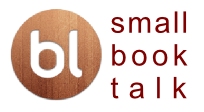
Do you read books during your writing process? Do they influence your work?
I do! I have to, or I lose touch of what great writing is. I usually try to be conscious of not letting the voice in another book bleed over into mine, but if I’m paying attention that usually doesn’t happen.
What are you reading now?
I just finished Carrie Mesrobian’s Sex & Violence, and it was wonderful and voicey and thought-provoking. I also finished Where’d You Go, Bernadette? So funny and charming and engrossing!
Are you a book collector or a book recommender?
Both. I love owning books I loved, and I love telling people about the great reads I come across. If I loved something, you’ll probably hear about it.
Paper books or e-books? Why?
I love both—but ownership is important to me, and I don’t feel like I own an e-book. I love e-books for sales and trying new authors and for bringing a tonof reading on vacation, but if I love a book or the author, I buy a physical copy. Just to make it mine.
What are your favorite books?
Please recommend some must read titles for our readers.
Gone Girl. The 5th Wave. What Alice Forgot. Warm Bodies. Daughter of Smoke and Bone. Under the Never Sky. This is Not a Test. The Coldest Girl in Coldtown. This Song Will Save Your Life.
Every one of these books is imaginative, twisting, gripping, and completely engrossing. Read them all.
What are you favorite quotes?
I have two that rank pretty highly for me:
The first comes from A Dance With Dragons, by George R.R. Martin: “‘A reader lives a thousand lives before he dies,’ said Jojen. ‘The man who never reads lives only one.’”
The second is from The Deathly Hallows and J.K. Rowling, courtesy of Kingsley Shacklebolt:
We’re all human, aren’t we? Every human life is worth the same, and worth saving.
What’s your favorite writing and reading spot?
I love to read on my couch at home, or in bed at night, but I most often write in the creative arts studio I run with my husband and a friend.

It’s a gorgeous studio with hardwood floors, a high table I use for a standing desk (important for people who sit all day!) and lots of natural light. It also shares a building with a café/wine bar, which is a great perk.

Thank you, Kate!
And here's a surprise from Kate Brauning:
enter the giveaway to win How We Fall:
You can find more information on Kate's author page.





